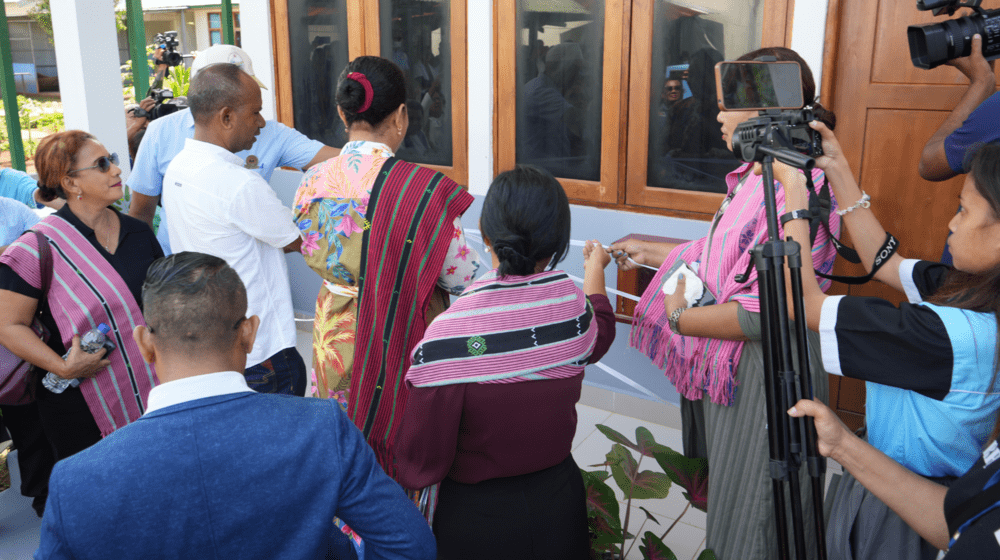Lautém, December 23, 2024 – H. E dr. Elisabeth Leto Mau, Director General of Primary Health Care of MoH in Timor-Leste, along with the UNFPA Assistant Representative in Timor-Leste, today launched a new safe space facility at Lospalos Community Health Center to provide healthcare services and ensure safety for survivors of gender-based violence (GBV) in Lautém municipality.
The newly opened center is the eighth of its kind in the country and the second safe space established with funding from Zonta International through the "Her Health and Dignity, Our Priority" programme. This initiative, implemented in Timor-Leste and Papua New Guinea, aims to improve the quality of services available to women experiencing violence and enhance the coordination between the health, security, justice, and social service sectors.
“With the established Safe Space, the trained healthcare providers can offer their best assistance, and survivors can feel safe and secure,” said Ema do Rego Fernandes, a general health practitioner at Lautém Community Health Center.
peaking during the launch, dr. Elisabeth Leto Mau, Director General of Primary Health Care of MoH, noted: "The role of the health sector is central to ending all forms of gender-based violence, given that health service providers are usually the first point of contact for the survivors. I am very pleased to be part of the launch of the Safe Space at the Community Health Centre in Lautém, an important step towards strengthening the health sector's ability to prevent and respond to gender-based violence."
Zonta funding has enabled UNFPA to strengthen the healthcare referral system and expand psychosocial support for GBV survivors in Timor-Leste.
As GBV is a public health issue with multidimensional consequences, a multi-sectoral approach and response to GBV is required to offer comprehensive support and continuum of quality care and protection of women and girls who experience/suffer from violence.
The health care system is the only institution that interacts with almost every woman at some point in her life and women exposed to violence visit health services more frequently than non-abused women. Health service providers (doctors, nurses and midwives), especially those serving in accident and emergency wards and in women’s health settings such as reproductive and sexual health, maternal child health and prenatal settings, have a critical role to play in detecting, referring and caring for women living with violence. Interventions by health providers can potentially mitigate both the short and long-term health effects of GBV against women and their families. The launch of this safe space is just the beginning of establishing a comprehensive support system for survivors, which will be inclusive of women, girls, men, boys, members of the LGBTQI community, and persons with disabilities,” said Domingas Bernardo, Assistant Country Representative in Timor-Leste.
The established safe space in Lautém will serve as a vital space for identifying GBV cases, providing medical care, and referring survivors to other essential services such as counseling centers, shelters, or legal assistance.
UNFPA continues to support the Government of Timor-Leste in monitoring and coordinating the implementation of the National Action Plan on Gender-Based Violence (NAP GBV 2022-2032).
UNFPA also works in partnership with other relevant ministries, research institutions and development partners to provide research support as well as technical support to strengthen the production and availability of disaggregated data and evidence for evidence-based advocacy, programming and decision-making


